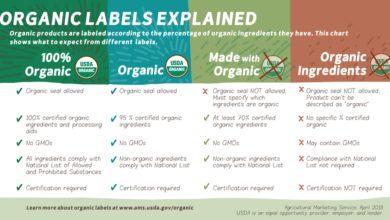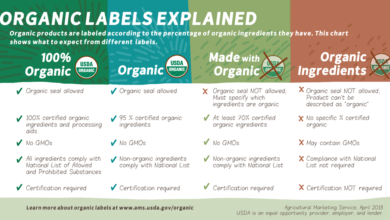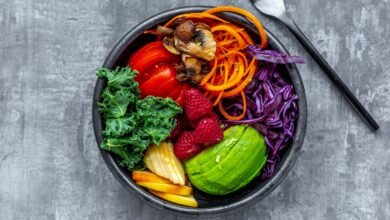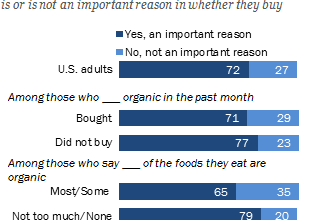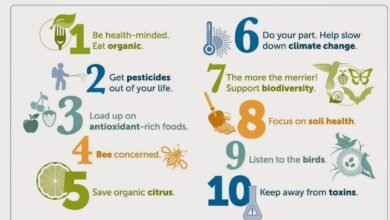
Why Nutrition Necessary for the Human Body: Essential Health Insights
Nutrition is vital for the human body. It helps us grow, stay healthy, and have energy.
Understanding why nutrition is necessary can improve your life. Good nutrition fuels our bodies. It helps us perform daily activities and maintain overall health. The food we eat provides essential nutrients. These nutrients support growth, repair tissues, and regulate body processes.
Without proper nutrition, our bodies can suffer. We may face health problems and lack energy. This blog post will explore why nutrition is crucial for our well-being. You will learn how good nutrition impacts your health and daily life. By the end, you will understand the importance of making healthy food choices. Let’s dive into the world of nutrition and its benefits for our bodies.
Importance Of Nutrition
Nutrition is the cornerstone of a healthy life. It provides the essential elements our body needs to function optimally. Consuming a well-balanced diet ensures we get the right nutrients. This supports our overall well-being and helps prevent various health issues.
Basic Nutrient Categories
Our body requires different types of nutrients to stay healthy. These nutrients are divided into several categories:
- Carbohydrates: The body’s main energy source.
- Proteins: Essential for building and repairing tissues.
- Fats: Vital for energy and cell growth.
- Vitamins: Important for various bodily functions.
- Minerals: Help with bone health, hydration, and more.
- Water: Crucial for hydration and bodily functions.
Role In Growth And Development
Nutrition plays a key role in the growth and development of the human body. Here are some important points:
- Supports Physical Growth: Nutrients like protein and calcium are vital for bone and muscle growth.
- Brain Development: Essential fats and vitamins support cognitive function.
- Boosts Immunity: Vitamins and minerals strengthen the immune system.
- Energy Levels: Carbohydrates provide the energy needed for daily activities.
- Cell Repair: Protein helps in the repair of cells and tissues.
Ensuring a balanced diet filled with these nutrients is fundamental. It helps in maintaining health and promoting growth and development.

Credit: askfilo.com
Macronutrients Explained
Our bodies need macronutrients to function well. These nutrients include carbohydrates, proteins, and fats. Each of these plays a crucial role in our health. Let’s take a closer look at each one.
Carbohydrates
Carbohydrates are the body’s main source of energy. They are found in foods like bread, rice, and pasta. Carbohydrates break down into glucose, which fuels our cells.
There are two types of carbohydrates:
- Simple carbs: These are sugars, found in fruits and sweets.
- Complex carbs: These include starches and fiber, found in whole grains and vegetables.
Complex carbs provide sustained energy. They also help in digestion due to their fiber content.
Proteins
Proteins are the building blocks of the body. They help in building and repairing tissues. Proteins are found in meat, beans, and nuts.
They are made up of amino acids. There are 20 amino acids, but 9 are essential. The body cannot produce these essential amino acids.
Good protein sources include:
- Lean meats like chicken and turkey
- Fish and seafood
- Legumes and beans
Including a variety of protein sources ensures you get all essential amino acids.
Fats
Fats are essential for many bodily functions. They help in absorbing vitamins and protect our organs.
There are three main types of fats:
- Saturated fats: Found in animal products like butter and cheese.
- Unsaturated fats: Found in avocados, nuts, and olive oil.
- Trans fats: Found in processed foods. These should be avoided.
Unsaturated fats are the healthiest. They support heart health and reduce inflammation.
Include these fats in your diet for a balanced intake:
- Olive oil for cooking
- Avocados in salads
- Nuts as snacks
Understanding macronutrients helps in making better food choices. Each type plays a key role in our overall health.
Micronutrients Vitality
Micronutrients are small but mighty. They include vitamins and minerals essential for the body. These nutrients play a key role in your health. They help in growth, disease prevention, and overall well-being.
Vitamins
Vitamins are organic compounds. They are needed in small amounts. Each vitamin has a unique role. For example, Vitamin C boosts the immune system. Vitamin D helps in bone health.
The body cannot produce most vitamins on its own. So, you need to get them from food. Here are some sources:
- Vitamin A: Carrots, sweet potatoes, spinach
- Vitamin B: Meat, eggs, nuts
- Vitamin C: Oranges, strawberries, bell peppers
- Vitamin D: Sunlight, fish, fortified milk
Minerals
Minerals are inorganic elements. They are crucial for various bodily functions. Calcium is vital for strong bones. Iron is necessary for blood production.
Minerals come from both plants and animals. Here are some sources:
- Calcium: Milk, cheese, yogurt
- Iron: Red meat, beans, tofu
- Potassium: Bananas, potatoes, avocados
- Zinc: Shellfish, seeds, nuts
Ensuring you get enough vitamins and minerals is key. A balanced diet helps achieve this. Your body will thank you.
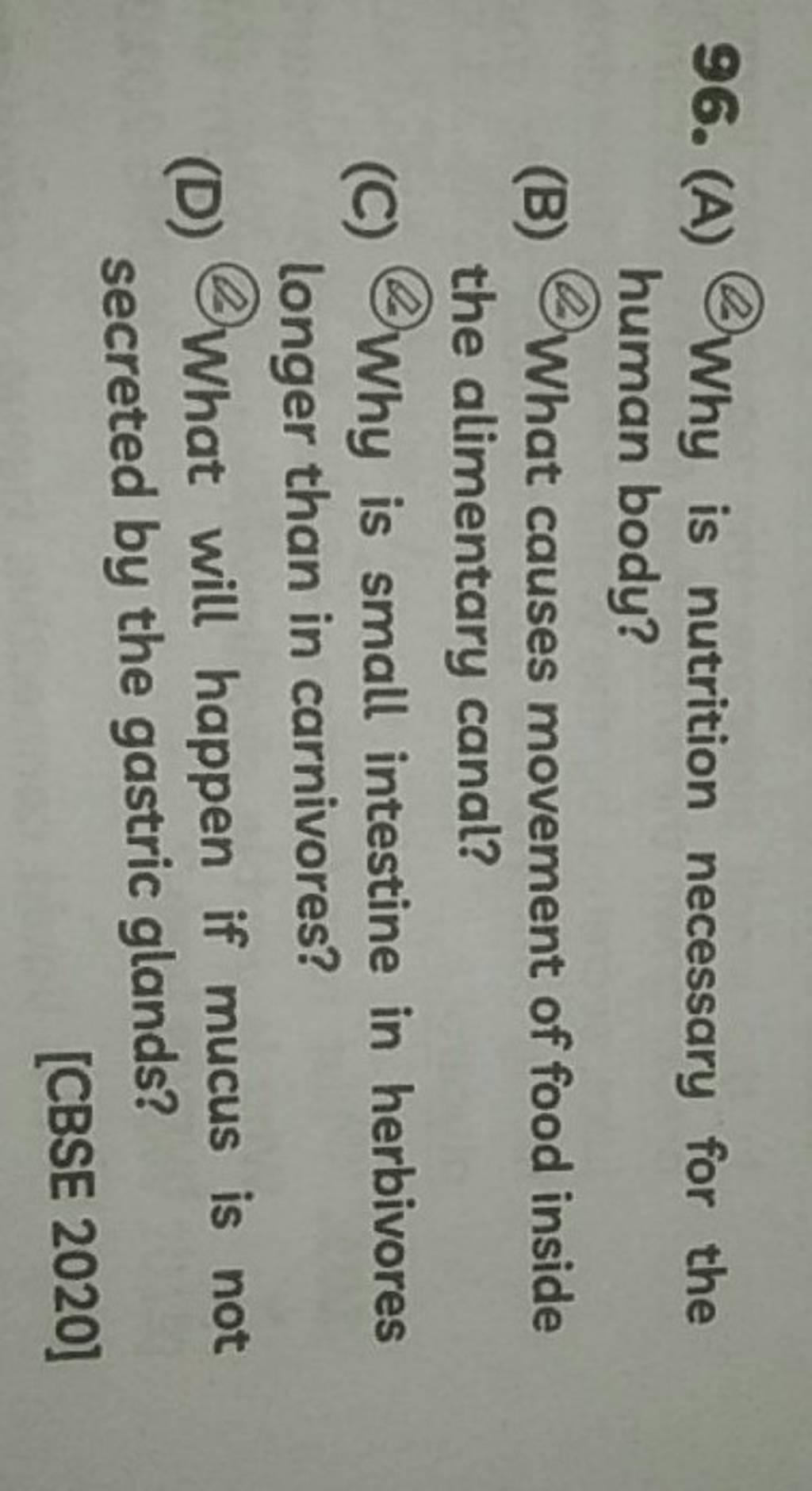
Credit: askfilo.com
Impact On Physical Health
Nutrition plays a crucial role in maintaining physical health. It affects energy levels, the immune system, and overall well-being. A balanced diet provides the essential nutrients the body needs to function properly.
Energy Levels
Energy levels depend on the nutrients you consume. Carbohydrates, proteins, and fats are the primary sources of energy. Carbohydrates provide quick energy, while proteins and fats offer sustained energy.
Eating a variety of foods ensures you get a balance of these nutrients. Whole grains, lean meats, and healthy fats are excellent choices.
Immune System
The immune system relies on vitamins and minerals to function effectively. Vitamin C, Vitamin D, and zinc are crucial for immune health.
Eating fruits, vegetables, and nuts can boost your immune system. These foods contain antioxidants that protect your body from harmful pathogens.
| Nutrient | Source | Benefit |
|---|---|---|
| Vitamin C | Oranges, Strawberries | Boosts Immune Function |
| Vitamin D | Sunlight, Fish | Supports Bone Health |
| Zinc | Nuts, Seeds | Fights Infections |
Maintaining a balanced diet ensures your body gets all the necessary nutrients. This helps you stay healthy and active, and supports your immune system.
Mental Health Connection
Nutrition plays a crucial role in our overall well-being. It impacts not only our physical health but also our mental health. The connection between nutrition and mental health is vital for maintaining a balanced life. Let’s explore how proper nutrition affects cognitive function and mood regulation.
Cognitive Function
Proper nutrition supports brain function and helps maintain cognitive abilities. Essential nutrients like omega-3 fatty acids, antioxidants, and vitamins are crucial for brain health. These nutrients can be found in foods like fish, nuts, and leafy greens.
Research shows that a diet rich in these nutrients can improve memory and focus. A lack of these nutrients can lead to cognitive decline and memory issues. Ensuring a balanced diet helps keep our brains sharp and functioning well.
Mood Regulation
Nutrition also plays a significant role in mood regulation. Certain foods can boost our mood and reduce feelings of anxiety and depression. For example, foods rich in serotonin, like bananas and nuts, can help improve mood.
A diet lacking in essential nutrients can negatively impact mood and mental health. Nutrient deficiencies can lead to feelings of sadness and irritability. Maintaining a diet with a variety of fruits, vegetables, and whole grains helps support a positive mood.
Let’s look at some key nutrients and their sources:
| Nutrient | Source |
|---|---|
| Omega-3 Fatty Acids | Fish, Flaxseeds, Walnuts |
| Antioxidants | Berries, Dark Chocolate, Spinach |
| Vitamins | Citrus Fruits, Broccoli, Carrots |
A balanced diet, rich in these nutrients, supports both cognitive function and mood regulation. This highlights the importance of nutrition for our mental well-being.
Long-term Benefits
Proper nutrition is not just about feeling good today. It has long-term benefits that impact your entire life. Eating a balanced diet can prevent diseases and increase your lifespan. These benefits are crucial for a healthy future.
Disease Prevention
Good nutrition is key to preventing diseases. A balanced diet strengthens the immune system. This helps the body fight infections. Vitamins and minerals play a vital role. They protect against chronic illnesses like diabetes and heart disease.
Eating fruits and vegetables reduces the risk of cancer. Whole grains and lean proteins keep your heart healthy. Healthy fats, like those in nuts, support brain function. Each nutrient has a specific role in disease prevention.
Longevity
Nutrition impacts how long you live. A healthy diet can extend your lifespan. Eating right reduces the risk of life-threatening conditions. This means fewer doctor visits and medical expenses.
People who eat well often live longer. They also enjoy a better quality of life. Nutrients like antioxidants slow down aging. Omega-3 fatty acids improve brain health. These benefits contribute to a longer, healthier life.
Overall, good nutrition supports long-term health. It helps prevent diseases and promotes longevity. This is why it is essential to eat a balanced diet every day.
Common Nutritional Deficiencies
Many people do not get enough nutrients from their diet. This can lead to nutritional deficiencies. These deficiencies can cause various health problems. Understanding common deficiencies can help prevent them.
Signs And Symptoms
Nutritional deficiencies often show through physical signs. Here are some common symptoms:
- Iron Deficiency: Fatigue, pale skin, and dizziness.
- Vitamin D Deficiency: Bone pain and muscle weakness.
- Vitamin B12 Deficiency: Numbness, memory issues, and balance problems.
- Calcium Deficiency: Muscle cramps and brittle nails.
- Vitamin A Deficiency: Night blindness and dry skin.
Recognizing these signs early can help in seeking treatment. Always consult a healthcare provider for accurate diagnosis.
Preventive Measures
Preventing nutritional deficiencies is easier than treating them. Here are some steps to follow:
- Balanced Diet: Include a variety of foods in your meals. Eat fruits, vegetables, proteins, and grains.
- Supplements: Sometimes diet alone is not enough. Supplements can help fill the gaps.
- Regular Check-ups: Regular health check-ups can detect deficiencies early. Blood tests can identify nutrient levels.
- Stay Informed: Learn about the nutrients your body needs. Read labels and understand the content of your food.
- Hydration: Drink enough water daily. Water helps in nutrient absorption.
By following these measures, you can maintain good health and avoid deficiencies.
| Nutrient | Food Sources |
|---|---|
| Iron | Red meat, beans, spinach |
| Vitamin D | Sunlight, fatty fish, fortified milk |
| Vitamin B12 | Meat, dairy products, fortified cereals |
| Calcium | Dairy products, leafy greens, almonds |
| Vitamin A | Carrots, sweet potatoes, liver |
Incorporate these food sources into your diet to meet your nutritional needs. Eating a variety of foods ensures balanced nutrition.

Credit: www.youtube.com
Practical Tips For Balanced Diet
Maintaining a balanced diet is essential for optimal health. It provides your body with the necessary nutrients. Here are some practical tips to help you achieve a balanced diet.
Meal Planning
Meal planning is crucial for a balanced diet. Planning your meals ahead helps you make healthier choices. Here are some tips:
- Create a weekly meal plan: Decide what you will eat for each meal.
- Include all food groups: Ensure your meals have fruits, vegetables, proteins, and grains.
- Prep ingredients ahead: Wash and chop vegetables, marinate proteins, and cook grains in advance.
Here is an example of a balanced daily meal plan:
| Meal | Food Items |
|---|---|
| Breakfast | Oatmeal, berries, and a boiled egg |
| Lunch | Grilled chicken, quinoa, and steamed broccoli |
| Dinner | Salmon, brown rice, and a mixed salad |
| Snacks | Greek yogurt, nuts, and an apple |
Healthy Snacking
Snacking can support your diet if done right. Choose snacks that are high in nutrients and low in empty calories. Here are some healthy snacking tips:
- Go for whole foods: Fresh fruits, vegetables, and nuts are excellent choices.
- Watch your portions: Use small containers to avoid overeating.
- Stay hydrated: Drink water throughout the day. Sometimes thirst is mistaken for hunger.
Here are some healthy snack ideas:
- Carrot sticks with hummus
- Greek yogurt with honey and berries
- A handful of almonds
- Whole grain crackers with cheese
- Sliced apple with peanut butter
Following these practical tips will help you maintain a balanced diet. Your body will thank you for the nutrients and energy.
Frequently Asked Questions
Why Is Nutrition Important For Humans?
Nutrition is vital for growth, development, and overall health. It provides energy and supports bodily functions. Good nutrition prevents diseases and promotes longevity.
What Are Essential Nutrients?
Essential nutrients include carbohydrates, proteins, fats, vitamins, minerals, and water. They are crucial for bodily functions and maintaining health.
How Does Nutrition Affect Energy Levels?
Proper nutrition fuels the body with energy. Carbohydrates, proteins, and fats provide essential energy for daily activities and mental alertness.
Can Poor Nutrition Cause Diseases?
Yes, poor nutrition can lead to diseases like obesity, diabetes, heart disease, and malnutrition. Balanced diets help prevent these conditions.
Conclusion
Proper nutrition supports overall health and well-being. It fuels your body. It strengthens your immune system. Good nutrition helps maintain a healthy weight. It also boosts energy levels. Nutritious foods improve mental clarity. They enhance daily performance. Eating well reduces disease risks.
It promotes long-term health. Balanced diets offer necessary vitamins and minerals. They keep you feeling your best. Make nutritious choices daily. Your body will thank you.


